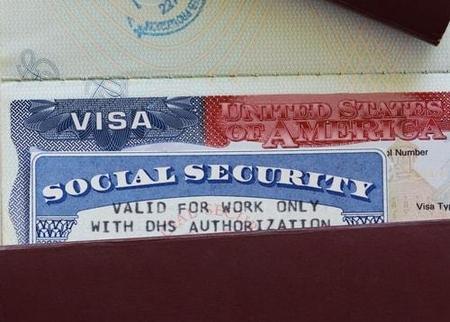Differences Between a Temporary Work Visa and an Employment-Based Visa
 Migrating to the United States for occupational-related purposes can attract the interest of working professionals from all around the world. Athletes, artists, individuals on business, and laborers in search of a new skill can all seek employment in our country. With that being said, there is a requirement of a visa in order to maintain employment in the United States. Depending on the needs of the future employee, he or she can apply for either a temporary or employment-based (EB) visa. Applying for these visas can be difficult, often leaving applicants confused and missing out on future opportunities. Retaining the help of a knowledgeable immigration lawyer could protect your chance at potential residency and employment.
Migrating to the United States for occupational-related purposes can attract the interest of working professionals from all around the world. Athletes, artists, individuals on business, and laborers in search of a new skill can all seek employment in our country. With that being said, there is a requirement of a visa in order to maintain employment in the United States. Depending on the needs of the future employee, he or she can apply for either a temporary or employment-based (EB) visa. Applying for these visas can be difficult, often leaving applicants confused and missing out on future opportunities. Retaining the help of a knowledgeable immigration lawyer could protect your chance at potential residency and employment.
Temporary Work Visa
When a person wants to enter the United States for employment on a fixed timeframe that is not considered indefinite, he or she would apply for a temporary work visa. A requirement of this category is reliant on the future employer to file a petition with the United States Citizenship and Immigration Services (USCIS). Information regarding your personal accomplishments as well as a background on the job you are seeking would help decipher which temporary visa category you would fit into:
- H-1B: This type of visa is for a specialty occupation, typically held by a trained professional with a bachelor's degree (or its equivalent).
- H-2A: Relates to individuals seeking agricultural work.
- H-2B: Relates to individuals seeking non-agricultural work.
- H-3: Provides the opportunity for training programs (non-medical or academic).
- L: Applies to individuals working at a home offices affiliate location in a managerial capacity.
- O: Employs applicants possessing outstanding academic, artistic, or athletic skills or achievements.
Additional stipulations in regard to category “O” are elaborated on further in sections P-1, P-2, P-3, and Q-1; these categories all relate to athletes, artists, and the educationally gifted.
Employment-based Visa
For individuals that are seeking indefinite employment in the United States, the accurate category for him or her would be an EB visa. In order for this to be granted, the employer must be able to demonstrate that there are no U.S. workers available for this specific position, as well as a variety of other stipulations. Similar to a temporary work visa, there are different class preferences that the jobseeker must fit into:
- First Preference: Applies to Individuals with exceptional abilities in athletics, arts, or education; professors, executives, and high managerial candidates also fall in this category.
- Second Preference: This section is related to future employees with advanced degrees (or their equivalent) that would result in the national interest.
- Third Preference: Applicants for this section include skilled workers (required two years of training or work experience - not seasonal), professionals with at least a bachelor's degree (or its equivalent), or unskilled workers seeking nonseasonal work that does not require experience.
- Fourth Preference: This section is for certain special immigrants, such as broadcasters, religious workers, Panama Canal zone employees, Afghan and Iraqi translators, and many other specific jobholders.
- Fifth Preference: Refers to immigrant investors that are seeking to create new enterprises and job growth inside the United States.
Ranging from October 1st - September 30th, there are 140,000 EB visas available for qualified applicants under the provisions of U.S. immigration law.
Contact an Illinois Immigrant Attorney
Applying for either a temporary or EB work visa in the United States can present several hurdles for any candidate to overcome. Applying for the correct category and subsection is crucial in the application process. Every employment opportunity is unique based on its location, requirements needed, and the length of employment required; having all this information in line is mandatory for the application process. Our dedicated Illinois work visa attorneys could provide insight, helpful tips, and advice to future employees of the United States. To schedule a free consultation, call us today at 630-932-9100.
 English,
English,
 Spanish,
Spanish,
 Polish,
Polish,
 Urdu
Urdu













 Make a Payment
Make a Payment



